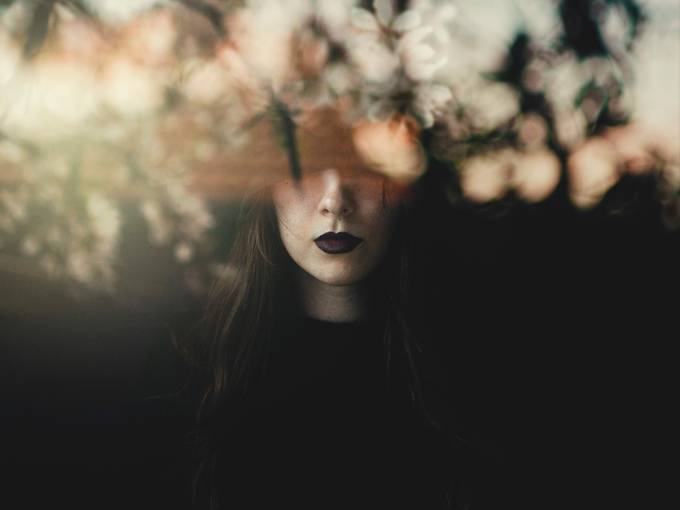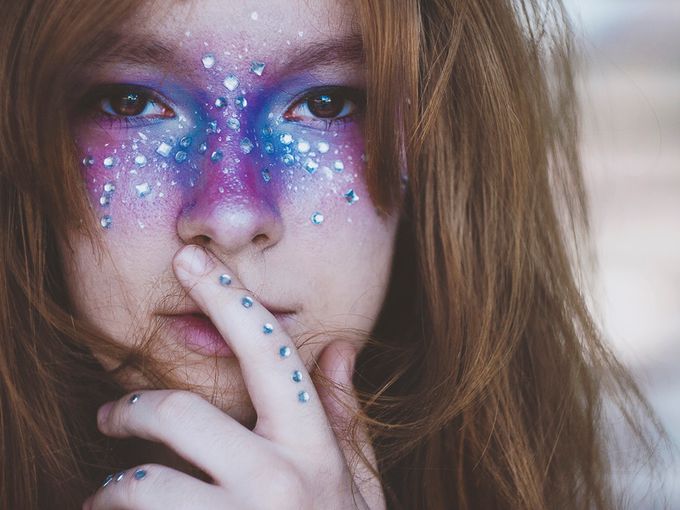ViewBug community member RainingInsanity has always been interested in photography. It all started when she found a great interest in her family's small analogue camera, perhaps only because she was never really allowed to play with it. There is so much more to learn about Josipa, read along!
What inspired you to be a photographer?
I remember well since I was a kid I'd always take great interest in my family's small analogue camera, perhaps only because I was never really allowed to play with it (I was just a kid and kids are very curious but at the same time very clumsy with technology).
Then, one day, when I was a bit more mature, around 11 years old, I got my first compact digital camera. I was always a very visual person with vivid imagination, I loved anything that would involve visual art such as drawing, modeling/sculpting and such. And, little by little, photography started being my number one creative outlet – I enjoyed capturing the scenery before me just as I imagined it, in my own way.
What was your first camera and what do you shoot with today?
My first ever camera was a small digital Kodak compact camera, one of the cheapest models available. Today I shoot with my trusty old Olympus PEN E-PL3 camera that has entered its fifth year a couple of months ago. On one hand, I'd love to grab a new, fresh camera, but on the other hand, I feel like I'm so used to using this one and all of its tricks that I really feel no need to replace it. I'm a firm believer that camera is just a tool to create masterpieces with, just as much as the pencil is to a drawing artist, and that you can create beautiful pieces with the worst of the tools, just as long as you have a clear understanding of light and a vivid imagination.
When someone looks at your photos, what do you want them to take away from it, what are you trying to communicate?
For thousands and thousands of years, art in all shapes and forms has managed to express what people in their everyday, real lives couldn't through plain old words. That's why, when someone looks at my work, I want them to form their own little story about it in their head. It's difficult for me to try and communicate through photos with my viewers, since the same image might have thousand different meanings to thousand different people. However, what I want to convey and evoke with my work are the emotions of the viewer and perhaps inspire them into doing something themselves. It doesn't have to be something artistic or grand, it can be an everyday little improvement, to get over that fear and lack of motivation.
What is it that you love about photography?
I just love watching it all come together – as I mentioned, a camera is just a tool, but even then, it's fairly difficult to „teach“ it to look at the world exactly as you see it. My eyes are only my own – and when I try to display my vision of scenery to someone else, I need to, first and foremost, learn to see with my own eyes in order to be able to capture it with my tool. That's why I love the sheer moment when I do capture a scene exactly as I see it, be it right in front of me or just a thought in my head.
What has photography done for you?
As mentioned before, it created an outlet for me to be able to express myself and my feelings, something that I always struggled with expressing through actual words. It also slightly forced me to open up and explore the world around me, allowed me to get to know all sorts of interesting individuals, be it models, other photographers and such.
Do you try to be conceptual or do you prefer to show the feeling behind a photo?
I go back and forth with that – sometimes I like to go conceptual and arrange little bits and pieces of my story through various elements at my disposal, and sometimes, I just want to capture raw emotion and feelings in one go.
How do you describe your style?
I'm a big fan of dark, fantasy and gothic style, as well as throwing a bit of vintage in the mix. The style of my photos is very gentle and hazy. I treat colors as a tool of composition and I frequently use color palettes to convey certain feelings through my work. I like to assign a color palette to each and every feeling I'm conveying. I try to make my photos very intricate, with lots of details that are cohesive together – lines, textures, light dots, anything at my disposal. I used to despise grain and texture in my photos, but now I love to use it as a composition tool as well.
If you had to choose one lens which one would it be and why?
Well, you could say I already use only one lens for most of my work!
All jokes aside, I feel like my current lens would never betray me, and it's the Helios 44m-4, an analogue lens from the old Zenit camera. This lens is a big contributor to my style, and even though it gave very gentle and dreamy outcomes on the first try, I feel like I had to get to know it quite well to be able to capture my shots exactly how I wanted them. It's quite tough to work with analogue prime lens, primarily since I do self portraiture the most while my lens has a manual focus! It's nerve-wrecking at times, but the final outcome is worth it.
What are your 3 tips for others who want to become a better photographers?
I don't think there are any special tips to give to beginner photographers that aren't already applicable in all other fields of human interest – working hard, not losing motivation/gaining discipline and constant improvement. Learning to see is the primary goal, reading up and learning is secondary. Working hard is an imperative – practice makes perfect. If you took one thousand photos to get to the perfect one, than that is not a waste of time – you got something you're proud of. Work hard for that one perfect piece. Train yourself to take a few photos everyday, because motivation is fleeting – what is a constant is discipline.
Have you received negative feedback from your work? What did you do about it?
Depends on what is considered negative feedback – in terms of offending or hurting someone, my work has never evoked such feelings (as far as I know) and I most certainly don't want that to ever happen. In terms of receiving negative critiques and commentary, I use those to further improve my work – I'm always glad to receive a critique on my work, be it positive or negative. That's how I learn to improve on things I wouldn't normally check twice. In terms of just plain rudeness or hatefulness, I don't feel the need to give that type of feedback any of my attention – and neither should anyone who has gotten that sort of feedback.
Where did you learn to take photos?
By reading and experimenting. I used the books and the power of Internet to their fullest, and completely nailed it down with constant practicing and improving. Reading about it only takes you up to some point. After that point, you have to take manners into your own hands and use what you learned.
Raw vs jpg and why?
I don't see any reason why someone who practices photography would ever use JPG over raw format. I'd suggest JPG only to completely beginner photographers to get the hang of photography, but other than that, raw is always the one to go with. It gives more control and power over editing, easier to correct color casts, white balance, contrast, anything. The reasons are always strictly technical.
What do you carry in your camera bag?
A couple of lenses (the kit lens for my camera and another analogue lens), and a mandatory tripod. I don't like to hog myself with a lot of equipment no matter what my subject is – I like working with natural light and with what I got at the moment.
If you could have the gift of a great photographer who would it be and why?
To be honest, I don't aspire to be anyone else but me as a photographer. I always appreciate other people's work, but I'm always true to myself and my own style. So I can't really give a definite, concrete answer to this question.
What is the most common mistake you see people making when shooting these days?
What I've been noticing lately in everyone's work is the lack of creativity and one's own style. Nowadays, all photographers use the same kind of clean and polished style in their work. I understand we're constantly technologically improving, but that doesn't mean we should lose sight of our own style and adapt what seems to be the norm nowadays in photography. Also, a big contribution to that are the trends in photography – whenever a big thematic trend comes on, everyone jumps on that train. It's somehow disappointing to see a bunch of same types of shots by different photographers. I'd like to see photographers starting to think for themselves and stop following so many trends – trend following seems to be some kind of theme for 2016.
What is your dream location to shoot?
I don't have a dream location per se, I find my country (Croatia) pretty photogenic as it is. But if I were to think about it, my dream locations would definitely correlate with the countries I'd like to visit one day: Iceland, Japan, Spain perhaps… The list of my dream travel destinations is quite long!
How do you decide on where to shoot a photo?
Definitely depends on what kind of shoot I'm doing – if I'm doing something gentle, dreamy, I'd opt for locations with gentle, flattering light and light patterns, with lots of patterns, details and textures, mostly somewhere outside like a beach or a park. If my subject is of bolder style, those sort of gentle nature locations would clash with it in a bad way, so I'd choose a location with clean lines, that's minimalistic and more on the urban side. I especially like to shoot models of bolder styles against the texture of walls of various buildings because end results turn out quite cohesive and intriguing to the viewer. However, the most important factor for me is the lighting – no matter where I shoot, there must be some good light!
What is next for you? Any planned adventures with your camera?
Currently I don't have anything planned, due to my college duties and exams. I'm also not a big planner, and I like to go about my photography in a spontaneous manner. I'll decide one day I'm going to go shoot this or that, but I'm not going to plan something ahead for a couple of weeks.
What is your goal with your photography?
I feel like my photography will always be a dear passion of mine, and something I'll be able to do even ten-twenty years from now, but not my job. In my honest opinion, I don't think I should turn my passion into a career, because I lose interest in things quickly once they become some sort of norm and commitment, and I don't want that to happen with my creative outlets. That's why I'm treating photography as my side job/passion/creative outlet, because I love to do it that much.
Get inspired, follow RainingInsanity
















